Our Verdict
The Stealth Ultra's big price tag is amply justified, with no-drift stick technology, brilliant microswitches, paddles, and on-the-fly customisation.
For
- No-drift thumb sticks
- Customisable without software
- Tactile microswitches
Against
- It's big
- The RGB seems pointless
- Phone app sucks
PC Gamer's got your back
Brave is the company that dares slap RGB and an LCD screen onto its premium game controller and still claims to have better battery life than Sony's DualSense, but Turtle Beach has done it with the Stealth Ultra. This gamepad looks a little like the designers at Turtle Beach sat down to trade ideas on how to challenge the Xbox Elite Series 2. But the meeting got a little out of hand, maybe some beers were involved, and this hilariously OTT unit resulted.
It's an impressive thing straight out of the box. Ensconced in its own zipped carrier, it looks bulbous and imposing compared to the stock standard PC gamer workhorse, the Xbox controller. It's noticeably bigger at 160 mm wide (6.3 inch), compared to the Xbox's 152 mm (6.02 inch), and its inbuilt lithium ion battery is presumably to thank for its lightness compared to the standard Xbox controller, which requires heavier AA batteries.
Also packaged is a charging dock, into which the 2.4GHz wireless USB dongle discreetly nestles via magnet. You can forgo the charging dock and plug the dongle straight into your PC, but I don't know why you would. Four rubber thumb stick covers and a long USB-C to USB-A cord are also included.
Like the Elite 2, the Stealth Ultra has ribbed handles. The presence of a 1.4 inch LCD screen and a new front facing button makes for a crowded-looking device. Honestly, I don't think it's an attractive thing to look at. The RGB strips running at the shores of the ribbed handles may impress some people, though not onlookers, since your hands will obstruct this dazzling light show during use.
Along the top is the USB-C input and two switches for adjusting the depth of the left and right trigger switches. The back of the unit has four paddle buttons that are functionally identical to the Series 2's P1-P4 switches, though the Stealth Ultra's paddles cannot be removed. In other words, the hand that giveth also taketh: some more granular customisation found in the Elite Series 2 has been sacrificed in the Stealth Ultra in favour of that screen and all the on-the-fly customizability it entails.
The software used to control the Stealth Ultra is of varying use and quality. The phone app is basically useless, though you need to install it if you want social media notifications sent from your phone to the controller's display. Doing this is tedious and not worth it anyway, as the controller's display shows such a truncated version of the notification it's easier just to have your phone next to you. That said, if you're only using it to see the coming and goings of friends on Discord, it probably doesn't matter.
The desktop app is useful, though it has some minor problems. It opens straight into fullscreen and exceeds the size of my display, meaning I can't see some of the options without doing a bunch of fiddling. Once it's displaying properly it's a decent app: adjusting trigger and stick deadzones in particular is a breeze, with a really useful interface showing how both stick and trigger movements react to the selected deadzone in real-time.
Keep up to date with the most important stories and the best deals, as picked by the PC Gamer team.
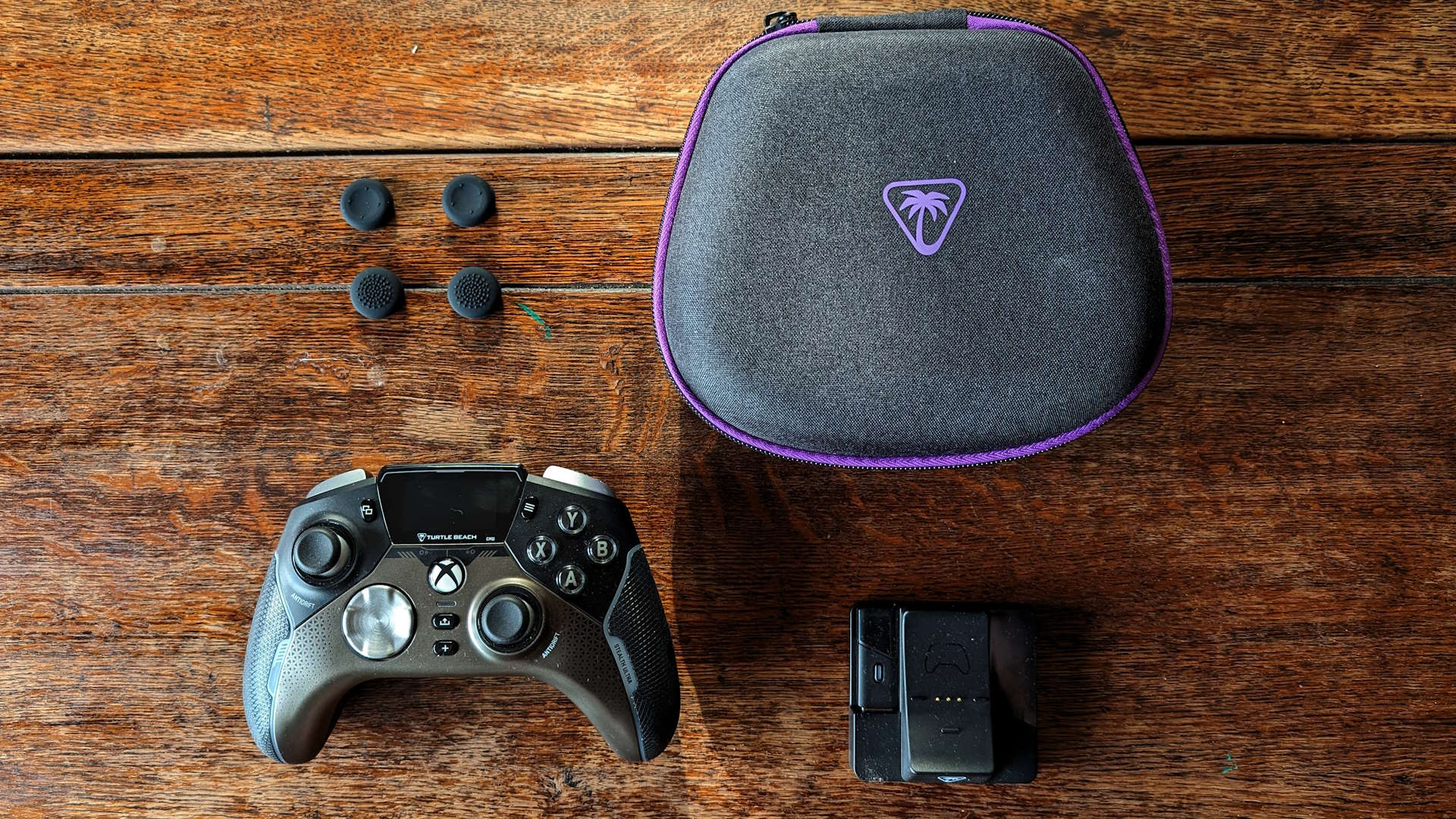
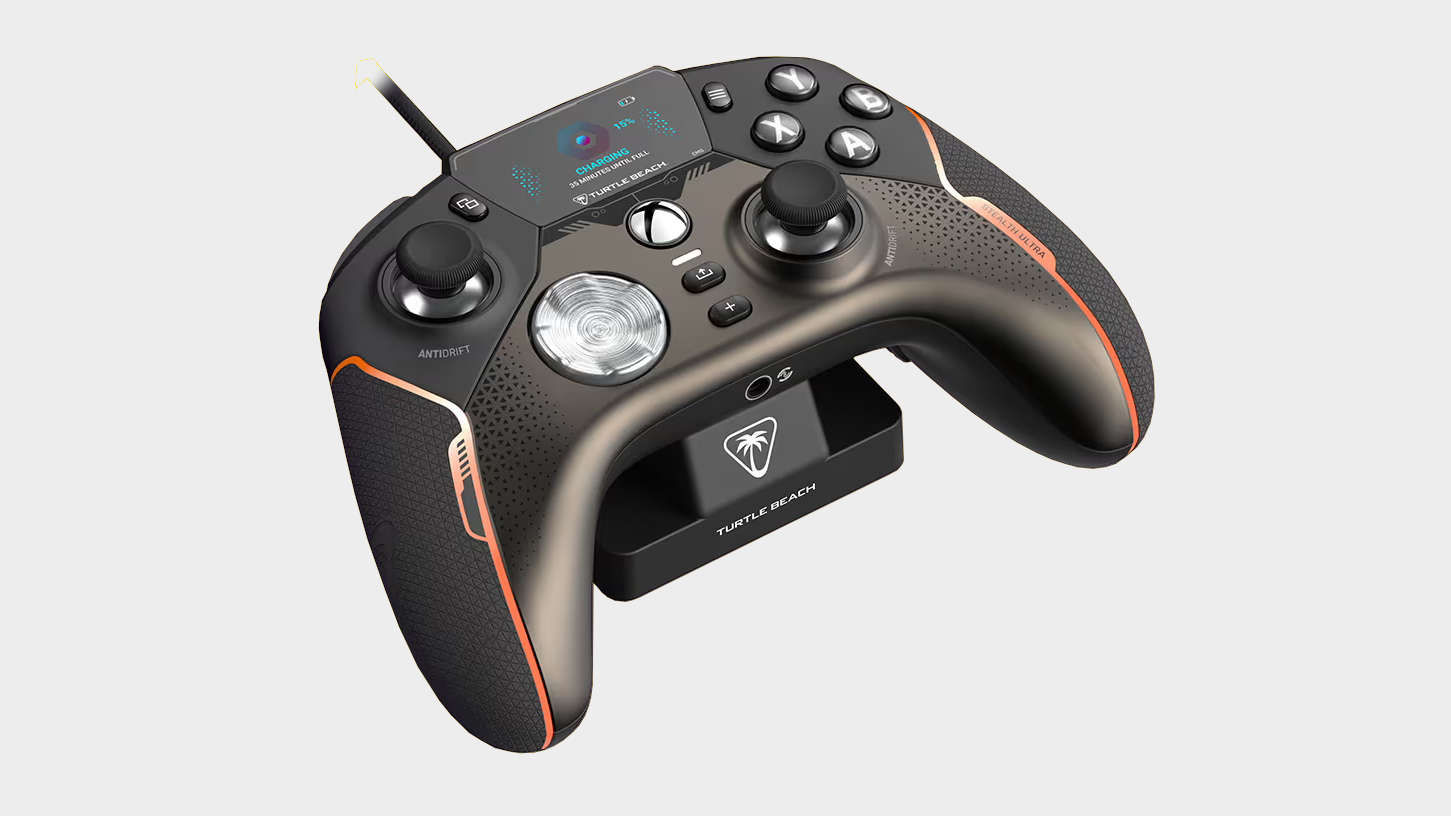
Despite its upsides you can forgo the app entirely, because almost everything worth doing with the Stealth Ultra can be done on its LCD screen. That includes functions like that deadzone adjustment, though fussier players might prefer the more detailed UI of the desktop version.
I was still impressed by how much stuff I could do onboard. Assigning functions to the P1-P4 switches in each of the ten onboard profiles is painless, as is adjusting sound settings on a per-profile basis. The latter includes not only mic monitoring and volume, but also some EQ options. To access these functions there's an extra button beneath the usual Xbox share button which toggles the screen between controller use and menu use. Sure, it's not as intuitive as a touchscreen, but the screen adds a lot to the Stealth Ultra, and is definitely not just a gimmick.
The Stealth Ultra uses Hall Effect thumb sticks which, thanks to their friction-less, contact-less sensors, will never suffer the vagaries of stick drift. Moreso even than that screen, this is what elevates the Stealth Ultra above the Elite Series 2 controller for me. An "elite" or otherwise expensive controller needs to have some guarantee of longevity given the exorbitant entry price, especially in this age of ubiquitous stick drift. It's nice to know that if you fork out for the Stealth Ultra it won't be rendered useless within a couple of years by this particular blight on controllers.
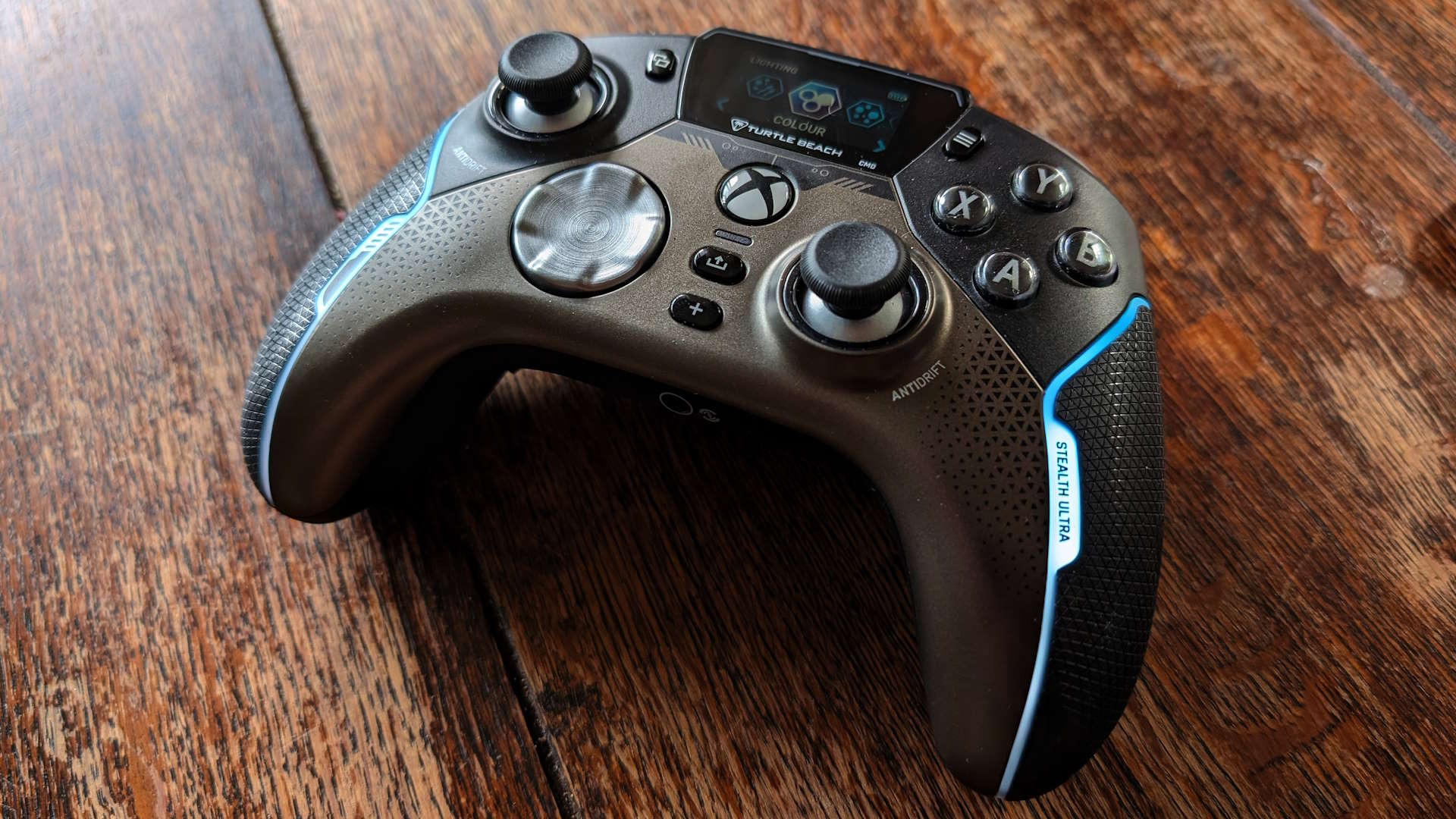
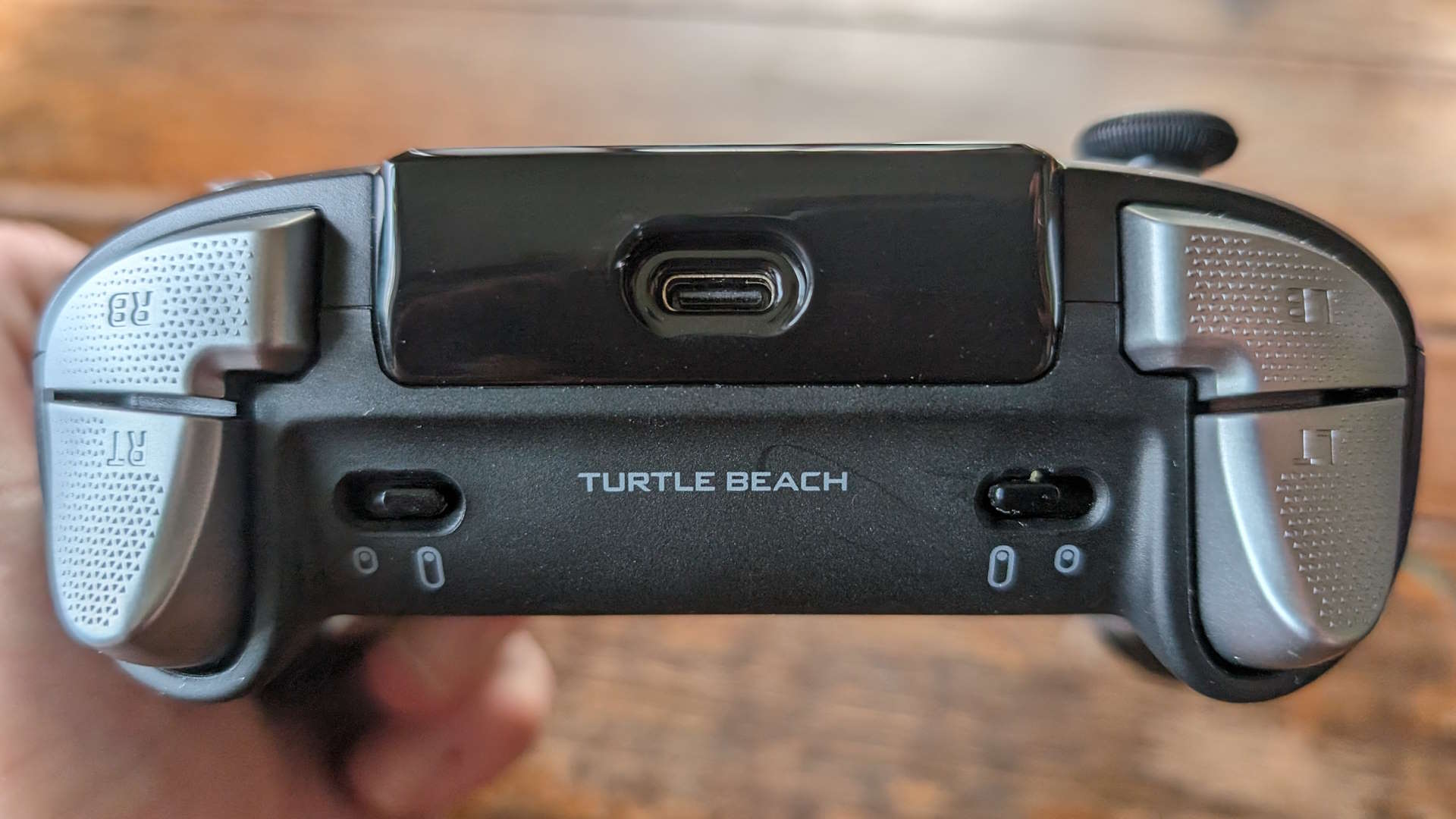
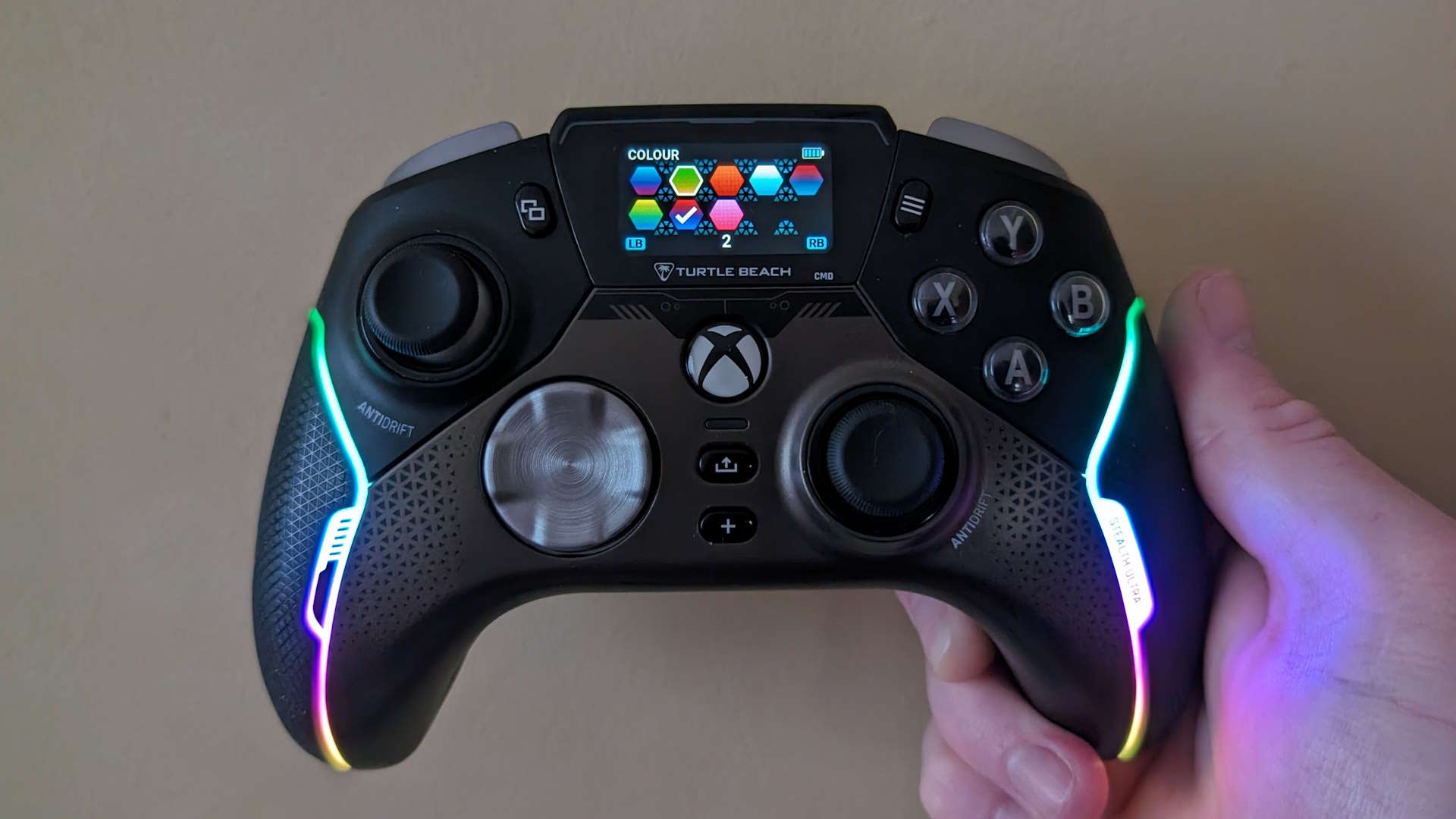
I'm definitely not forking out big bucks for a controller without Hall Effect sticks.
Another boon are the microswitches under the d-pad and face buttons, which lend a mechanical tactility to each press. Unlike the Elite Series 2 the d-pad isn't swappable, so the concave d-pad is the only option here. I play a lot of platformers and hate the concave d-pad on the normal Xbox controller, but the aforementioned microswitches on the Stealth Ultra improve the experience a great deal: precision requires the feeling that a press is enacted properly, and that "click" certainly helps.
Left and right triggers have adjustable depths, with two switches on the back of the controller that can toggle between a default deep stroke and a much more shallow stroke. This is one less option than the Elite Series 2, and while that doesn't bother me, it may influence players who have become used to the latter controller's middle ground option.
✅ You want a premium "elite" controller with Hall Effect sticks: The Stealth Ultra's paddles, its microswitches, and its customizability are bolstered by thumbsticks that won't, in theory, break in the next 24 months.
❌ Your Elite Series 2 is still alive and kicking: No need to upgrade, and it's surely nearing time when Microsoft will reveal a new generation of its own premium gamepad.
It seems inevitable that Microsoft will dole out an Elite Series 3 one of these days, and if it doesn't have Hall Effect sticks people are going to spew. What it almost certainly won't have is the Stealth Ultra's onboard customisation which, once you've come to grips with it, is truly useful, making it easy to experiment with those paddle switches without having to tab-juggle between game and software.
And while there's no denying the Elite Series 2 is a neat bit of kit, in 2024 I think I'd spring for the Stealth Ultra first. That's chiefly because I want the paddle buttons but I'm definitely not forking out big bucks for a controller without Hall Effect sticks.
It's been nearly five years since the Series 2 released and, thanks mainly to Joy-Cons and DualSenses, stick drift is probably more feared now than it ever has been (amusingly, Sony's eye-wateringly expensive DualSense Edge doesn't have Hall Effect sticks, though they are replaceable. Please, Microsoft, don't do this). Add to that the on-the-fly customisation, microswitches, and roughly 25 hour battery life, and the Stealth Ultra proves itself a surprising hit.
The Stealth Ultra's big price tag is amply justified, with no-drift stick technology, brilliant microswitches, paddles, and on-the-fly customisation.

Shaun Prescott is the Australian editor of PC Gamer. With over ten years experience covering the games industry, his work has appeared on GamesRadar+, TechRadar, The Guardian, PLAY Magazine, the Sydney Morning Herald, and more. Specific interests include indie games, obscure Metroidvanias, speedrunning, experimental games and FPSs. He thinks Lulu by Metallica and Lou Reed is an all-time classic that will receive its due critical reappraisal one day.

